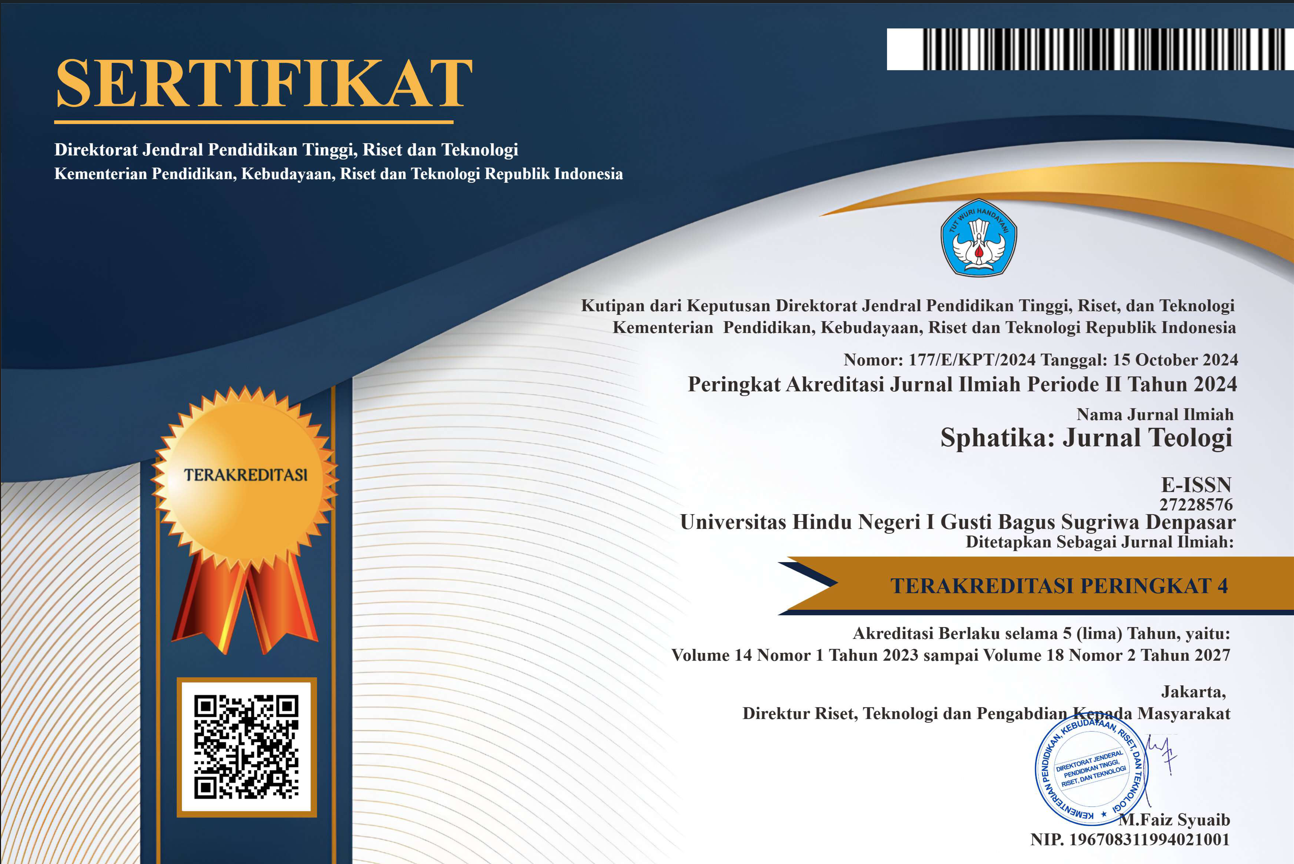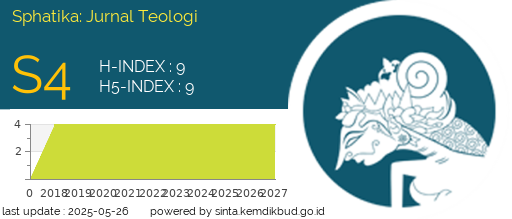Bale Gading dalam Upacara Dewa Yajña:
Kajian Bentuk, Fungsi, dan Makna
DOI:
https://doi.org/10.25078/sphatika.v14i2.3107Keywords:
Bale Gading, Dewa YajnaAbstract
Hindus in Bali in carrying out the yajna ceremony still adhere to the teachings passed down by their ancestors and sometimes do not know the function and meaning of the ceremony. This is starting to be shaken by the critical minds of the younger generation who are starting to question why a ceremony is being carried out, therefore this research was conducted to discuss one of the types of ceremonies used in a yajna ceremony, namely the use of ivory bale in the god yajna ceremony. The form, function and meaning of using the ivory bale in the Dewa Yajna ceremony was studied using a qualitative descriptive method in which data were obtained from observation, document studies and interviews. The discussion begins with the definition and mythology of the ivory bale. Bale ivory is a small white and yellow bale whose function is to honor Sang Hyang Semara Ratih and has theological meaning, sociological meaning and ethical or ethical meaning in living life.
References
Bustanuddun Lubis. (2011). Mitologi Nusantara: Penerapan Teori (1st ed.). Quiksi.
Hari Harsananda, A. (2020). Ganesha Sebagai Simbol Paradigma Positivisme. Sanjiwani, 11. https://scholar.google.com/citations?view_op=view_citation&hl=id&user=U_RWrjcAAAAJ&citation_for_view=U_RWrjcAAAAJ:u-x6o8ySG0sC
I Made Putra Aryana. (2019). Nilai Ketuhanan Hindu dalam Sarana Upacara Bale Gading. Pangkaja, 22, 1–17.
Maswinara, I. W. (2003). Bhagawad Gītā; Dalam Bahasa Sanskṛta, Inggris dan Indonesia. Paramita Surabaya.
Miartha, I. W. (2004). Upacara Maapeselang pada Karya Ngenteg Linggih di Pura Panti Pasek Gegel Beng Gianyar sebagai Visualisasi Ajaran Sivalingga, Analisis Bentuk, Fungsi, Makna. IHDN Denpasar.
Pudja, G. (n.d.). Kesatuan Tafsir II Terhadap Aspek-Aspek Agama Hindu. Kanwil Depag Provinsi Bali.
Radhakrishnan, S. (2008). Upanisad-Upanisad Utama.
Surayin, I. A. P. (2004a). Seri I Upakara Yajna melangkah ke Arah persiapan Upakara- Upacara Yajna. Paramita Surabaya.
Surayin, I. A. P. (2004b). Seri IV Upakara Yajna Manusa Yajna. Paramita Surabaya.
Tim Penyusun. (2001). Siwagama (Terjemahan dalam Bahasa Indonesia). Pemerintah Kabupaten Badung.
Wiana, I. K. (2004a). makna Upacara Yajna dalam Agama Hindu. Paramita Surabaya.
Wiana, I. K. (2004b). Makna Upacara Yajna dalam Agama Hindu II. Paramita.
Widyawati A.A. Ayu Alit, M. A. (2020). Upacara Menek Deha. Pangkaja, 23. https://scholar.google.com/citations?view_op=view_citation&hl=id&user=xXj7x4kAAAAJ&citation_for_view=xXj7x4kAAAAJ:UeHWp8X0CEIC















